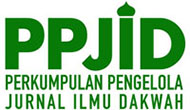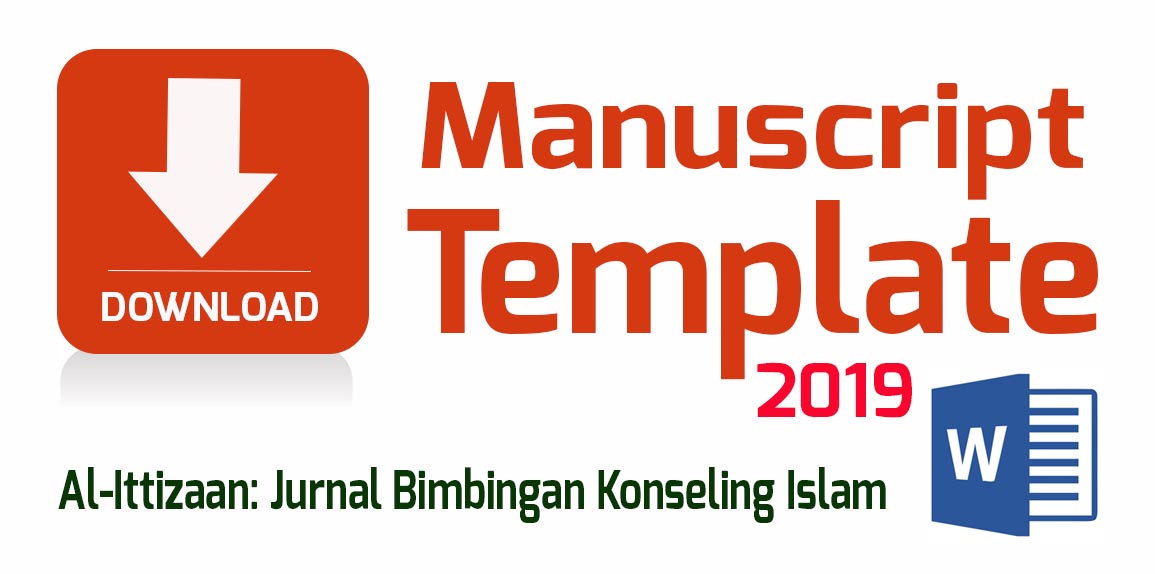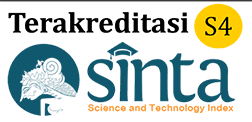The Effectiveness of Spiritual Emotional Freedom Technique (SEFT) to Reduce Stress and Increase Work Motivation in Nurses
Abstract
Abstrak
Stres kerja dalam penelitian ini lebih mengarah kepada konotasi negatif yang memberikan dampak pada individu, lingkungan kerja, social dan keluarga pada penderita yang mengalaminya. Hal ini mengakibatkan menurunnya motivasi kerja karyawan hingga memicu kinerja dan produktifitas yang buruk. Motode penelitian yang digunakan dalam penelitian ini adalah eksperimen, yaitu Quasi Experimental Desigan pre-test dan post-test. Tujuan penelitian ini adalah untuk mengetahui efektifitas SEFT (Spiritual Emotional Freeedom Technique) dalam menurunkan stres dan meningkatkan motivasi kerja perawat. Hasil dari penelitian menunjukkan bahwa SEFT efektif dalam menurunkan stres kerja sebesar 57% dan SEFT juga efektif meningkatkan motivasi kerja sebesar 17%. Pemanfaatan SEFT sebagai treatment akan menguntungkan berbagai pihak, mulai dari kesehatan mental karyawan secara pribadi maupun pihak instansi yang akan menerima kinerja yang baik dari karyawannya. SEFT menjadi jalan keluar bagi instansi yang memiliki masalah stres dan motivasi kerja yang sering dialami karyawan namun kurang penanggulangan.
Abstract
Work stress in this study leads to negative connotations that have an impact on the individual, work environment, social and family on the sufferer who experiences it. This results in decreased employee motivation, which leads to poor performance and productivity. The research method used in this study was an experiment, namely the Quasi Experimental Design of the pre-test and the post-test. The purpose of this study was to determine the effectiveness of SEFT (Spiritual Emotional Freeedom Technique) in reducing stress and increasing work motivation of nurses. The results of the study showed that SEFT was effective in reducing work stress by 57% and SEFT was also effective in increasing work motivation by 17%. The use of SEFT as a treatment will benefit various parties, ranging from the mental health of employees personally to institutions that will receive good performance from their employees. SEFT is a solution for agencies that have stress and work motivation problems that are often experienced by employees but lack of control.
Keywords
Full Text:
PDFReferences
Büssing, A., Falkenberg, Z., Schoppe, C., Recchia, D. R., & Poier, D. (2017). Work stress associated cool down reactions among nurses and hospital physicians and their relation to burnout symptoms. BMC Health Services Research, 17(1), 1–13. https://doi.org/10.1186/s12913-017-2445-3
Chirico, F,. (2016). Spiritual Well-Being in the 21st Century: It’s Time to Review the Current WHO’s Health Definition?. Journal of Health and Social Sciences. 1(1). (2016).
Daft, L. R. (2012). Era Baru Manajemen. Jakarta: Salemba Empat.
Departemen Kesehatan RI. Diakses pada 19 Agustus 2018, dari http://depkes.go.id/folder/view/01/structure-publikasi-pusdatin-profil-kesehatan.html.
Feinstein, PhD, D. (2012). What Does Energy Have to Do with Energy Psychology? Energy Psychology Journal, 4(2), 65–85. https://doi.org/10.9769/epj.2012.4.2.df
Feinstein, D. (2009). Controversies in Energy Psychology. Energy Psychology Journal, 1(1), 45–56. https://doi.org/10.9769/epj.2009.1.1.df
Hapsari, I. I., Puspitawati, I., Suryaratri, D. R. (2017). Psikologi Faal. Bandung: PT Remaja Rosdakarya.
Kartono, K. (1991). Psikologi Sosial untuk Manajemen, Perusahaan dan Industri. Jakarta, CV. Rajawali.
Khan, Z. A., Zafar, S., Giri, P., & Priyamveda, K. (2010). Role of energy psychology in treatment of road accident trauma. International Journal of Psychology, 2(November), 85–90.
Kusnanto, K., Pradanie, R., & Alifi Karima, I. (2016). Spiritual Emotional Freedom Technique (SEFT) terhadap Kualitas Hidup Penderita Tuberkulosis Paru. Jurnal Keperawatan Padjadjaran, v4(n3), 213–224. https://doi.org/10.24198/jkp.v4n3.1
Levy E. P. (2003). Industrial/Organizational Psychology. New York, Houghton Mifflin Company.
Malappuram, K. (2015). Management of Stress and Motivation of Employee. International Journal of Research – Granthaalayah, 3(2).
Mkumbo, K. (2014). Prevalence of and Factors Associated with Work Stress in Academia in Tanzania. International Jornal of Higher Education, 3(1).
Nekorance, J., Kmosena, M. (2015). Stress in the Workplace – Sources, Effects and Copiny Strategies.
Purwanto. (2011). Statistika untuk Penelitian. Yogyakarta,Pustaka Pelajar.
Siagian, P. S. (2003). Teori Motivasi dan Aplikasinya. Jakarta, Rineka Cipta.
Steve & Thomas. (2013). Organizational Psychology a Scientist-Prectitioner Approach. Boston: Basic Book.
Sugiyono. (2017). Metode penelitian Kuantitatif, Kualitatif, dan R & D. Bandung, Alfabeta.
Suwardi, S., & Utomo, J. (2011). Pengaruh Motivasi Kerja, Kepuasan Kerja, Dan Komitmen Organisasional Terhadap Kinerja Pegawai (Studi Pada Pegawai Setda Kabupaten Pati). Jurnal Analisis Manajemen, 5(1), 75–86.
Tania, A., & Sutanto M. Eddy. (2013). Pengaruh Motivasi Kerja dan Kepuasaan Kerja Terhadap Komitmen Organisasi Karyawan PT. Dai Knife di Surabaya. Jurnal Agora, 1(3).
Utaminingtias, W., Ishartono, I., & Hidayat, E. N. (2015). Coping Stres Karyawan Dalam Menghadapi Stres Kerja. Share : Social Work Journal, 5(1), 190–200. https://doi.org/10.24198/share.v5i1.13123
Widhiastuti. (2002). Studi Meta-Analisis Tentang Hubungan. Jurnal Psikologi, Vol. 1(1), 28–42.
Wahjono I. S. (2010). Perilaku Organisasi. Yogyakarta: Graha Ilmu.
Yana, D. (2014). Stres Kerja pada Perawat Instalasi Gawat Darurat di RSUD Pasar Rebo Tahun 2014. Jurnal Administrasi Rumah Sakit Indonesia, 1(2), 107–115.
Yusuf, A., Nihayati, H. E., Iswari, M. F., & Okviasanti, F. (2016). Kebutuhan spiritual : Konsep dan Aplikasi Dalam Asuhan Keperwatan. Ners Unair Repository, 326.
Zainuddin, A. F. (2008). SEFT for Healing + Succes + Happiness + Greatness. Jakarta Timur: Afzan Publishing.
DOI: http://dx.doi.org/10.24014/ittizaan.v3i2.11799
Refbacks
- There are currently no refbacks.
Copyright (c) 2021 umul sakinah

This work is licensed under a Creative Commons Attribution 4.0 International License.
 Indexed By:
Indexed By:
Al-Ittizaan Journal is licensed under a Creative Commons Attribution 4.0 International License.








.png)



